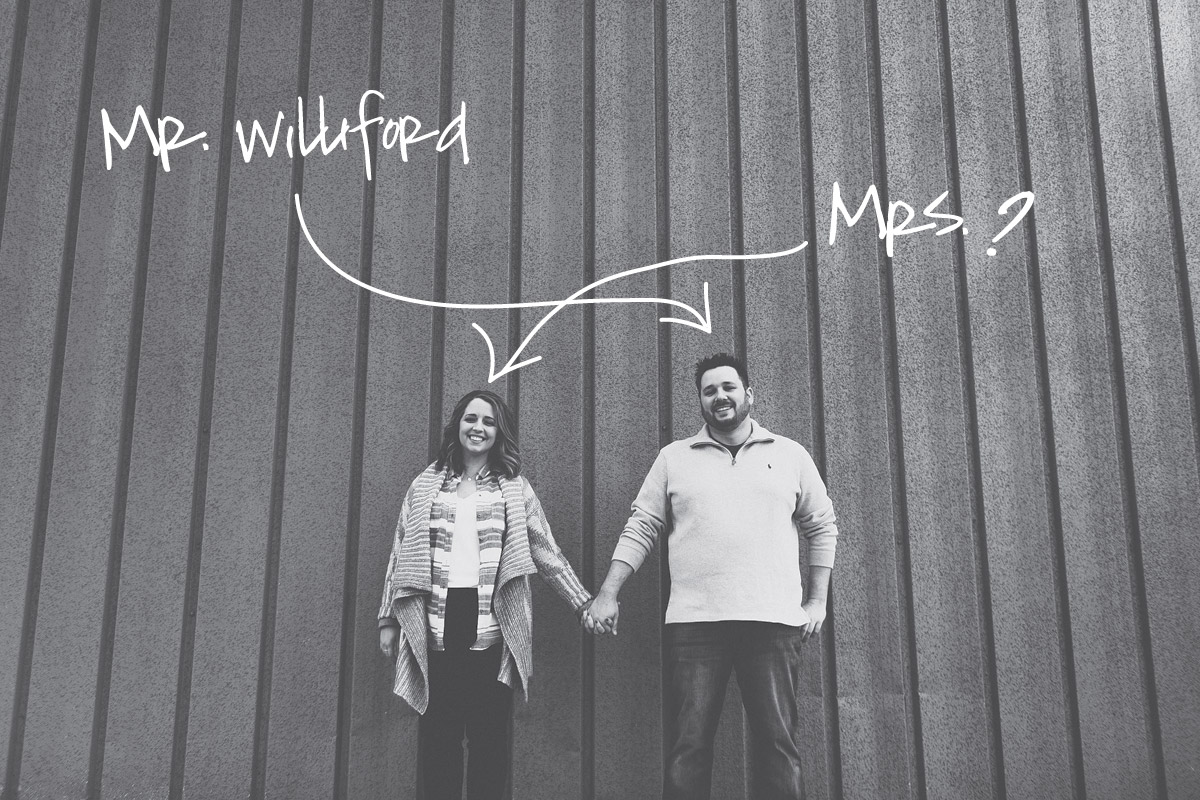How I Decided to Take My Husband’s Name, Kinda
If you looked at my freshman algebra notebook, you might think my decision to take my fiance’s name after we marry was an easy choice. Somewhere between the thoughtless doodles and actual math work are dozens of scribbles of my name attached to the husband du jour. Dropping my last name to become “Taryn Timberlake” seemed like an easy choice when I was 14. At 27, with a growing career and a different last name attached to a real man with real opinions about the subject, the decision is a little more complicated.

Deciding whether or not to change your name comes down to an issue of identity. Most of us realize on an intellectual level that changing a name isn’t going to change who you are, but giving up your maiden name does feel like you’re giving up something of significance. Maybe it’s your culture, or a connection to your immediate family, or the name on your degree. Or maybe you feel like you’re giving up on feminism in general. But I grew up not minding the idea of taking my husband’s name. Blame whatever patriarchal societal standard you’d like, but I always expected that I’d take my husband’s name*. I was never focused on what I’d be losing, but instead what I would gain in marriage: A husband. A family. A future. Rooster feels the same way. He had always looked forward to a future where he got to pass on his family name to his wife and, down the road, his children.
Even though I never felt like my name was attached to who I am, it is, however, attached to something else. My work. Deciding to marry at 27 has given me plenty of time to build my professional identity. It’s not just that the people I work with know me by my maiden name, but as a writer I have a trail of work online that I don’t want to lose a connection to. It’s pivotal that my professional history (and my Google rank) stay with me after our marriage. So even though Rooster and I both want me to become Mrs. Taryn Williford, I can’t afford to have Taryn Fiol disappear from my name. (I also can’t reconcile the idea of having two totally separate names for my personal and professional life. My work is so closely tied to who I am that I won’t consider taking on dual names and dual identities.)
So I’m pulling a Hillary Rodham Clinton and not only keeping but using all three.

Huffington Post
Truthfully, it was Hillary Rodham Clinton who cemented the idea in my head that I could bridge the gap between my pre-marriage and post-marriage identity. Her story proves that your name can evolve over time, that you can pay tribute to your new family without losing any associations with your unmarried accomplishments. Whether I say “Hillary Rodham” or “Hillary Clinton,” you know exactly who I’m talking about. Not so for Martha Kostyra.
So on October 12, 2014, I will wake up as Taryn Fiol Williford. At least in spirit, since certainly it will take some paperwork to make it official. Though I’ll be sad to see my grandmother’s name go, I will drop my middle name, Evelyn, and make my maiden name my new middle name on paper. I fully expect people from different areas of my life to call me by my maiden name, or to leave out my new middle name when addressing me. I’m just happy to have found a married name that works for me, and to follow the trail of a great woman who’s made it work for her.
—
*For anybody on the fence about whether to take their husband’s name, I strongly suggest reading through The Last Name Project. The series of posts on The Feminist Mystique profiles individuals and couples about their last name decisions. It was seriously eye-opening to read perspectives from ladies who’ve given the name change a lot of thought.
 Hi! I'm Taryn, a writer, designer and soon-to-be-bride from Atlanta, Georgia. Sit a spell with me and catch up as I plan the wedding of my beer-loving, confetti-throwing dreams to the wonderful Mr. Williford.
Hi! I'm Taryn, a writer, designer and soon-to-be-bride from Atlanta, Georgia. Sit a spell with me and catch up as I plan the wedding of my beer-loving, confetti-throwing dreams to the wonderful Mr. Williford.